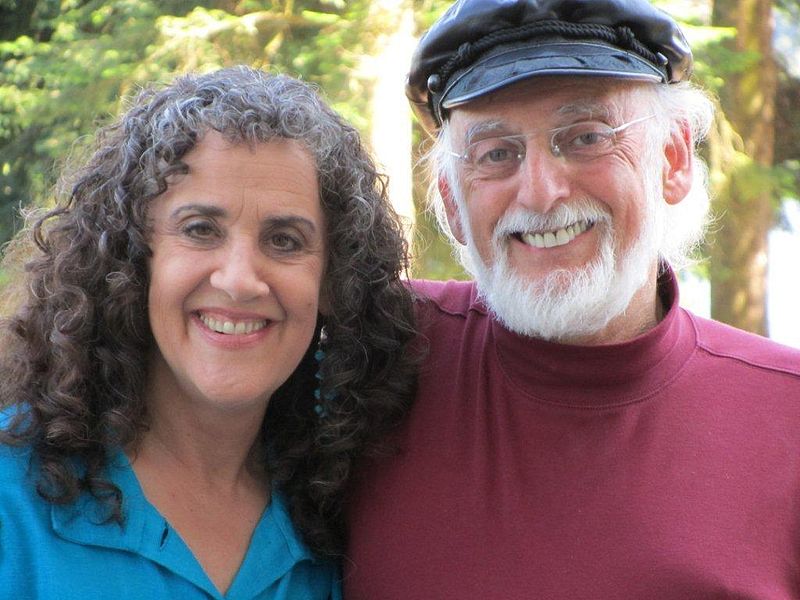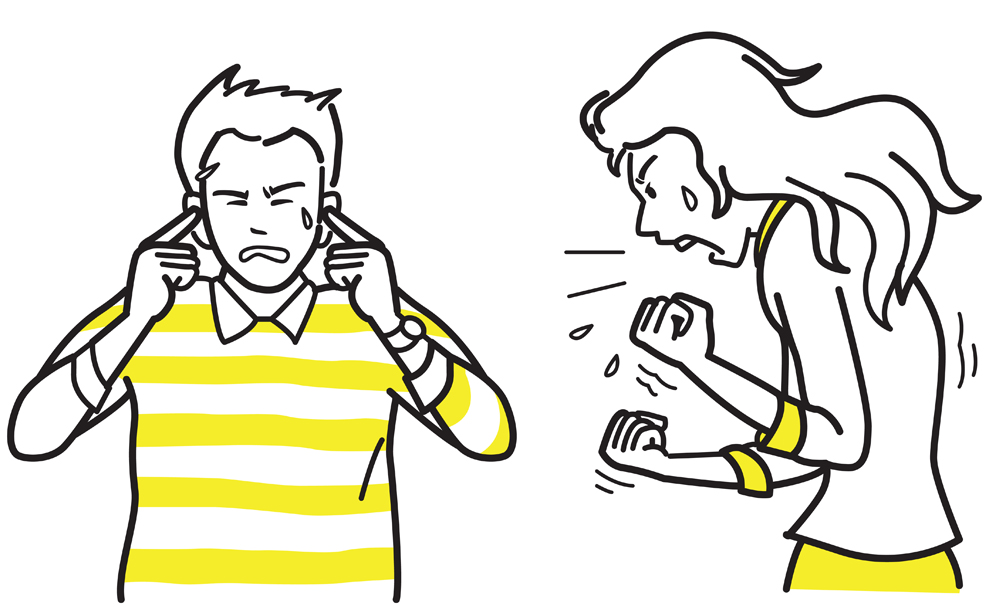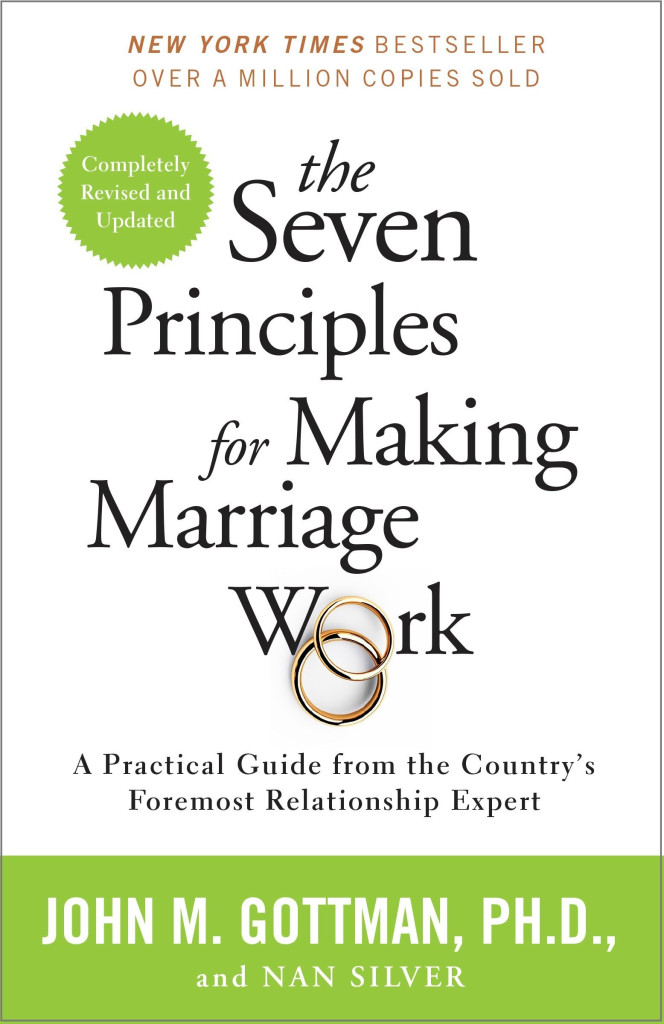Table of Contents (click to expand)
Couple therapists, John and Julie Gottman, look for indicators in conversations and interactions between individuals. From these snippets alone, they can accurately predict when a divorce is imminent.
By watching couples interact for just 3 minutes, researcher and couples therapist John Gottman believes that he can predict divorces with up to 90% accuracy.
How does he do this? Crystal balls or palm reading? Better yet, can he look into your eyes and simply plumb the depths of your soul? Or does he have some invisible time machine parked beside him that he uses to peek directly into your future?
Nope, nope, nope, and… nope.
John Gottman and his partner Julie Gottman use science-backed research and patterns verified by math to identify some traits that act as predictors of divorce.
The first step is to assess conversations between partners, which will be explained thoroughly later in this article.
Who Are The Gottmans?
Back in 1986, two researchers, Robert Levenson and John Gottman, were having some tough luck in the department of love. In the non-Tinder age, these two decided that they would use scientific evidence to determine what makes relationships tick.
They went on to set up a ‘Love Lab’, an apartment where couples were invited to stay for a day, while their interaction with each other—be it it amicable or conflictual, verbal or non-verbal—was recorded.
The two researchers then went back and watched hours of these interactions and came up with some theories on the way couples communicated, and how these methods of communication could either make or break a marriage.

The ‘Love Lab’ in Seattle continues to receive participants of all ages, races, and sexual orientations. Most of these research studies are longitudinal and take years before a theory develops. John eventually went on to marry Julie, and together they founded the Gottman Institute, of which Julie is now the President.
The method of couples therapy they developed is now used worldwide. Together, they train therapists from across the world in their Couples Therapy method and personally conduct sessions to help improve relationships.
Also Read: What Is Emotionally Focused Therapy?
Communication Loopholes
We’ve all heard psychologists and lifestyle bloggers say the word ‘communicate’ with enough passion to crack our screens. However, the Gottmans realized that telling everyone to communicate wasn’t really enough. They had to be a bit more particular about how to guide couples and in what ways.
Also Read: Does Our Culture Impact Our Body Language?
Four Horsemen Of The Apocalypse
There were some indicators in the way couples communicated that the Gottmans always looked for; one particularly interesting set of ideas they introduced was called ‘The Four Horsemen of Apocalypse’.
One or more of the four horsemen could be observed during conflicts or even everyday conversations, and just as in the apocalyptic story, when the horsemen came, the end was near.

Criticism
The first horseman was criticism; when one criticizes the other partner, it is generally an attack on the character of the person. This undercuts who he or she is, or insults what their ideas and perceptions of life are. An example of criticism could be: “You forgot to do the dishes again? You’re so lazy!”
Defensiveness
The second horseman was defensiveness. It’s natural for us as humans to defend ourselves when anyone says anything even slightly offensive to us. We want to stand our ground and defend our actions, even if we know that some of it may not be right.
Contempt
The third horseman is contempt. Contempt is said to be the most dangerous of the three, as it’s a way of suggesting dominance over the other person. Contempt is harsh, ruthless, and generally suggests a sense of disgust with who the other person is. “Look at how well I did the dishes last week, and look at what you did instead!” suggests authority or superiority over the other person.
Stonewalling
Lastly, the fourth horseman is stonewalling. Stonewalling is a method that most men use to avoid conflict, in which they tend to go into themselves and shut out their spouse. Stonewalling a partner only increases aggression, as the partner feels unheard and left out.

Apart from these indicators, the Gottmans also suggested a few other communication indicators that lead to a harsh start-up to a conversation and ‘flooding’ of the other individual.
A “harsh start-up”, as the name suggests, means to start the conversation in a demeaning way or with a tone that immediately makes the listener feel threatened, which activates his/her defenses. “Flooding” is when a person starts to feel that all four horsemen are coming at once. It’s the feeling of being shell-shocked about what’s coming at you, and is essentially a freeze response to stress.
When these communication loopholes or behaviors are found in conversation, it’s often a case where couples feel misunderstood or unheard. This eventually leads to a loveless marriage and, in most cases, a divorce.
How Can We Deal With This?
The Gottmans believed that most couples find ways to defuse situations of tension. Even couples who were satisfied with their marriage had some of these loopholes in their conversations. Some would laugh and crack jokes, or would avoid conflicts altogether. These were called ‘repair’ attempts. When couples knew how to repair themselves, they were most resilient to the negativity and immediately bounced back after fights.
The Gottmans believed that repair attempts could be made by one or both spouses. However, what generally happens is that, in the barrage of criticism and negative things, these repair attempts often go unnoticed. When this happens, the negativity prevails and no conclusion is reached.

Gottman Method Couples Therapy
Thankfully, the Gottmans didn’t just tell people how to spot red flags in relationships; they also provided a few suggestions to counter them, some of which are outlined below.
- A gentle start-up to an argument. A gentle start-up communicates a request, rather than an order. It tends to protect both partners from getting critical and defensive.
- Criticism is harsh, and it does not get the job done. You communicate your discomfort with what the other person has done/not done, but also drag down their personality and values. The easiest way to deal with criticism is to complain. A well-worded complaint is much more effective than an attacking critique. Here’s an idea: “When I see the dishes piled up, it makes me feel overwhelmed. Can you wash them, as we agreed that we would take turns washing, and it’s your turn?”
In the above complaint, one is not just saying how the undone chore affected them, but also offered a solution to the issue, which often solves the problem, rather than provoking more refusals or stubbornness.
- While dealing with defensiveness, the Gottmans suggested that it’s fruitful to accept responsibility, and use more ‘and’ statements, rather than ‘but’ statements. In other words, saying, “I was a little caught up with the meeting and it slipped my mind. I apologize and will do it within the hour” is better than “I’ve been saying I’ll do it, but you just don’t listen at all.”
- Contempt, although it’s the most debilitating of the four, is the easiest to deal with. It is critical to understand that everyone is unique, and also more skilled than others in some aspect or another. Allowing each other to take the upper hand in situations where they excel will help to negate conflicts.
- Lastly, when one of the two partners is feeling flooded and starts to stonewall, it’s respectful to ask for a break. That being said, it is then the person asking for a break’s responsibility to come around and re-initiate the conversation. It’s nice to keep the break to an hour or less; leaving someone hanging isn’t the way to maintain a good relationship.
Verdict?
The Gottmans analyzed every banal and boring conversation that couples had over and over to identify patterns of communication and interaction. Research has shown that the Gottman Method of therapy does demonstrate an improvement when it comes to marital satisfaction. That being said, when the first three minutes of any argument started with a lot of negative emotions and very little positivity, couples did tend to separate relatively soon. In other words, divorce is predictable, but also avoidable if you’re willing to work on improving your marriage.

The book explains communication patterns in more detail and provides exercises to help understand one’s spouse better. You can buy the book here: https://amzn.to/2s7wzUx
The Gottmans have written multiple books on improving relationships. While these books cannot replace the process of actually going to therapy, they do act as a positive form of psycho-education and motivates one to be a better human. Gottman himself agreed that improving one’s communication style is not enough to make a marriage work; there are other things like trust, calmness and commitment that also affect relationships in a fundamental way!
How well do you understand the article above!

